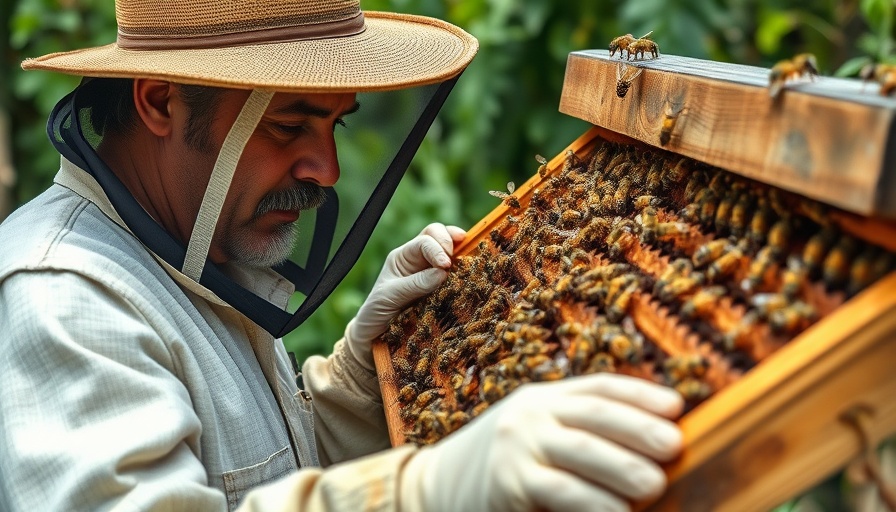
Understanding the Role of Bees in Ecosystems
Bees do more than buzz around flowers; they perform an essential task that affects entire ecosystems. As pollinators, they help flowers produce seeds and fruits, facilitating plant reproduction. This role is critical, especially in regions like South Florida, where diverse vegetation relies on these industrious insects for survival. Without them, the chain of life would be disrupted, leading to a decrease in plant diversity, which could further impact the animal species that depend on these plants for food and shelter.
In 'Why Bees Matter: Saving South Florida’s Pollinators', the discussion dives into the significance of bees in maintaining ecosystems and agriculture, prompting further analysis on how communities can contribute to their survival.
Why Honey Bees are Essential to Agriculture
A staggering one-third of the food supply is dependent on pollinators, primarily bees. These tiny creatures contribute significantly to the agricultural economy by ensuring the growth of crops ranging from almonds to blueberries. In South Florida’s warm climate, honey bees thrive, helping fruit and vegetable farmers produce high-quality yields. Protecting bee populations is not just vital for biodiversity; it's also crucial for food security and local economies.
The Decline of Bee Populations: A Growing Concern
Despite their importance, bee populations are declining at an alarming rate due to factors such as habitat loss, pesticides, climate change, and diseases. According to recent studies, beekeepers in the U.S. report losses of about 30% of their colonies each year. This decline presents a significant threat not only to the ecosystem but to agriculture and food supply chains as well.
Efforts to Save South Florida's Pollinators
In response to the bee crisis, various organizations and initiatives have emerged in South Florida aimed at protecting and rehabilitating bee populations. Community gardens, educational programs, and local legislation are all stepping stones towards creating a better future for these vital insects. Planting native flowers and reducing pesticide use are simple actions individuals can take to help bees thrive.
What Can You Do to Help Bees?
Getting involved in local conservation efforts can amplify positive change. Individuals can create bee-friendly habitats by planting native flowering plants in their gardens, avoiding pesticides, and supporting local beekeepers by purchasing honey and other products. Additionally, educating oneself and others about the importance of bees can lead to collective action that makes a difference.
A Glimpse into the Future: Protecting Pollinators
The future of bees and, consequently, our environment hinges on public awareness and collective efforts. As interest in sustainability grows, more communities are advocating for policies that protect bee habitats and promote healthy ecosystems. Collaborative efforts between scientists, policymakers, and communities are essential to sustain bee populations and preserve the health of our environment.
In conclusion, protecting bees is not just about saving insects; it's about ensuring a balanced ecosystem and a sustainable future for agriculture. Their role as pollinators is pivotal in maintaining biodiversity and food security. By understanding their importance and taking action in our own communities, we can contribute significantly to their survival.
 Add Row
Add Row  Add
Add 




Write A Comment